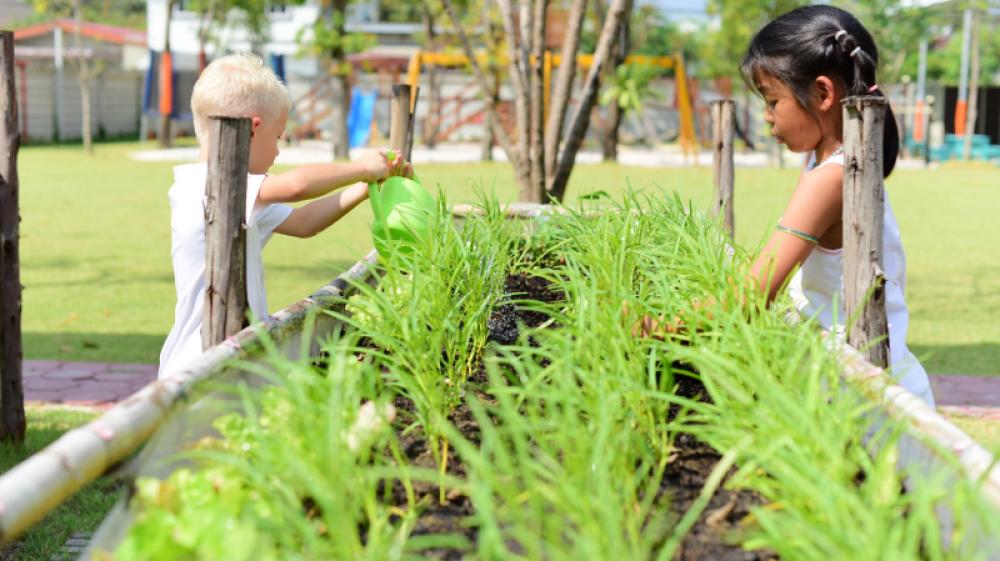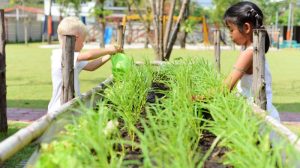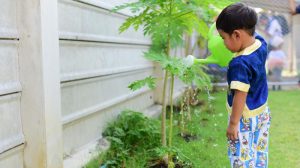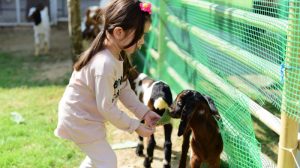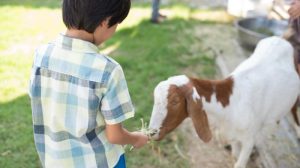At MYIS International School, we’ve seen firsthand how a school farm can meaningfully impact a child’s development. It has the capacity to reinforce key concepts in their learning journey and can help them grow into more compassionate, caring and reflective human beings.
We share 6 benefits of the school farm that we’ve seen make the biggest difference in the lives of our young learners.
1. Develops caring learners
As our children interact, nurture, and care for the wellbeing of the farm’s plants and animals, they learn to develop a sense of empathy and compassion for them. Being empathetic and compassionate are highly important attributes of the IB Learner profile that are vital to an individual’s ability to significantly contribute to the betterment of their community, country and world.
By caring for the farm’s living things, children quickly grow in their capacity to see in themselves a higher calling to nurture and care for the environment they live in.
2. Promotes scientific discovery
Being engaged in activities on the school farm provokes learning about the processes and systems at play in our natural world. In order to meet the growing needs of the farm’s plants and animals, children learn to use the scientific method to find out the best techniques, strategies and steps to help these living things thrive.
They become prompted to go through a process of inquiry and investigation where they ask questions such as “What does the plant need to grow healthy and strong?”, “What steps are needed to ensure this happens?”, “What is preventing the plant from growing?”, “What other conditions need to be in place for this plant to grow better?”.
The children then experiment with different cultivation methods and finally, reflect upon their own practices on which methods best nurtured the growth of the plants and animals. By using this approach, children learn how to alter and adjust their response in order to better address the challenges they face.
3. Fosters environmental stewardship
On the school farm, children get to learn firsthand about important sustainable practices such as composting and waste reduction. They learn how significant it is to the caring of our environment as they develop a deeper understanding of the nutrients that natural compost provide to plants and how waste is detrimental to the growth and health of the entire ecosystem.
When children learn about processes such as food chains, water and energy cycles or the needs of different plant species, they grow in their sense of closeness to nature as they now have many reasons to care about the factors that impact its future.
This feeling of closeness to nature is crucial to fostering individuals who see themselves as stewards of the environment – individuals who feel responsible to conserve, protect and constantly nurture the ecosystem that gives us life. The more children are learning about their environment, the more they are imbued with the awareness necessary to become informed and active global participants who protect our natural world.
4. Encourages a healthy lifestyle and good eating habits
Children are often more enthusiastic to try new food if they’ve been involved in its growth process. As children learn how plants benefit the ecosystem, they begin to see how plants can also be beneficial to their life and diet. What’s more, farming activities such as planting, digging, weeding and harvesting introduce children to new and colorful ways to stay active.
5. Provides opportunities for learning outside the classroom
Learning on the school farm provides our students with the opportunity to connect what they have been learning in the classroom to real-world situations. The space of the farm becomes a place for them to apply what they currently know, to test out some of their ideas and to further their understanding of different concepts through practical, firsthand experiences.
Learning then becomes an authentic experience as children are encouraged through this process to take control of their own learning and become more active in seeking knowledge and in solving problems.
6. Enhances literacy and language skills
When children learn on the farm, they become exposed to new vocabulary in an authentic learning environment. As they engage in more complex activities surrounding the growth of these plants and animals, they are introduced to new words and ideas as they learn the names of different plants, animals and the terms used for environmental processes and systems. Engaging in this process allows children to develop a stronger sense of vocabulary and literacy through hands-on experiences.
Children also build on their literacy skills when they are participating in dialogue and discussion with their peers and teachers on the farm. The changing nature of farming probes children to think on their feet and solve new challenges. As they do this, they are motivated to ask their friends and teachers questions related to the challenges they face, exercising language in a practical circumstance and strengthening their literary capacity in the process.
To learn more about how our school farm can enrich your child’s learning experience, get in touch with MYIS today. Call us at 0-2156- 6222.
